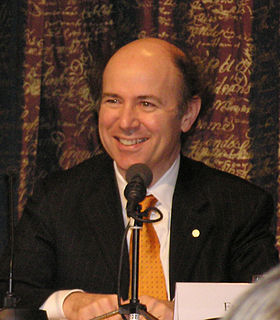A Quote by Immanuel Kant
Is it reasonable to assume a purposiveness in all the parts of nature and to deny it to the whole?
Related Quotes
The Iron Throne is mine by rights. All those who deny that are my foes." "The whole of the realm denies it, brother," said Renley. "Old men deny it with their death rattle, and unborn children deny it in their mothers' wombs. They deny it in Dorne and they deny it on the Wall. No one wants you for their king. Sorry.
Modern physics has taught us that the nature of any system cannot be discovered by dividing it into its component parts and studying each part by itself... We must keep our attention fixed on the whole and on the interconnection between the parts. The same is true of our intellectual life. It is impossible to make a clear cut between science, religion, and art. The whole is never equal simply to the sum of its various parts.
I believe that the universe is one being, all its parts are different expressions of the same energy... parts of one organic whole.... (This is physics, I believe, as well as religion.) The parts change and pass, or die, people and races and rocks and stars; none of them seems to me important in itself, but only the whole. This whole is in all its parts so beautiful, and is felt by me to be so intensely in earnest, that I am compelled to love it, and to think of it as divine.
"Pieces" almost always appear 'as parts' in whole processes. ... To sever a "'part" from the organized whole in which it occurs-whether it itself be a subsidiary whole or an "element"-is a very real process usually involving alterations in that "part". Modifications of a part frequently involve changes elsewhere in the whole itself. Nor is the nature of these alterations arbitrary, for they too are determined by whole-conditions.
Human nature has its fatal weaknesses, but 'love' means embracing the whole of human nature, the bad within the good, the benign within the malicious, the beautiful within the tragic. 'Love' is the experience of this whole, its unfinished parts, including those of one's own in relation to those of the other.






































